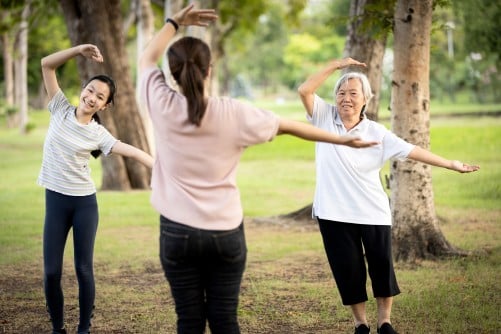The Chula ARi project, initiated by Chulalongkorn University, aims to develop a comprehensive elderly care model for Thailand, addressing a significant demographic shift as the country prepares for a projected increase in its elderly population over the next decade. Currently, individuals aged 60 and over constitute approximately 20% of the national population, a figure expected to rise to 30% by 2033, marking the onset of what is being referred to as a “senior tsunami.”
According to Professor Dr. Vipan Prachuabmoh, the Project Director, the demographic shift results from a substantial population born between 1963 and 1983, a period characterized by high birth rates. This generation, now entering retirement age, is projected to add nearly one million elderly individuals to Thai society annually.
“The successes we have seen in public health have led to longer life expectancies. However, this trend also means that older individuals are more likely to suffer from chronic diseases and increased dependency,” Professor Dr. Vipan stated. He emphasized the urgency of preparing for the implications of this demographic change, noting that the shrinking working-age population and declining birth rates could strain welfare systems and essential services.
Addressing the Aging Challenge
Launched in 2018 with support from the university’s Century 2 (C2F) grant, the Chula ARi project aims to enhance the quality of life for the elderly across multiple dimensions, including economics, health, and environmental sustainability. The initiative’s focus is not only on current elderly individuals but also on pre-seniors, encouraging early preparation for the challenges posed by an aging population.
The project operates on three levels of activities: policy research, community engagement, and the development of support systems. Engaging communities through research data is a critical component, allowing residents to gain insights into their circumstances and collaboratively identify solutions to improve the quality of life for the elderly.
“We work with communities and stakeholders to find shared solutions,” Professor Dr. Vipan explained. “Our approach emphasizes the exchange of knowledge across disciplines, including social sciences, medicine, and engineering.” The project has established partnerships with 16 other agencies to facilitate a collaborative approach.
Building Sustainable Solutions
The Chula ARi project has successfully piloted the development of ten elderly communities in Bangkok between 2018 and 2022. These include diverse neighborhoods such as Wang Thonglang and Phasi Charoen, where community-driven initiatives have fostered well-being through activities like exercise, nutrition programs, and the creation of green spaces.
Professor Dr. Vipan highlighted the importance of adapting homes for elderly residents, ensuring safety and accessibility. “Communities have developed common areas that promote interaction among residents of all ages, creating safe spaces for exercise and learning,” he noted.
In addition to community development, technological innovation plays a vital role in the project’s approach. Collaborating with the Faculties of Engineering and Medicine, Chula ARi is developing community-focused robots designed to assist with elderly care. These include rehabilitation robots for stroke patients and telemedicine devices that facilitate health monitoring and consultations.
With the success of the initial pilot communities, Chula ARi is set to expand its efforts to 15 additional communities in the Prawet and Pathumwan districts, in collaboration with the Bangkok Metropolitan Administration. This two-year initiative, commencing in 2024, aims to utilize data collected from residents to inform community-driven solutions.
Professor Dr. Vipan emphasized the importance of empowering communities to manage their own data and development strategies. “If residents can accurately collect data, they will be better equipped to address their needs and improve their quality of life,” he explained.
As Thailand navigates the challenges of an aging society, the Chula ARi project serves as a vital example of proactive measures to ensure a sustainable future for its elderly population. The collaboration of academic institutions, local communities, and governmental agencies illustrates a comprehensive approach to addressing the complexities of aging in society.
For more information about the Chula ARi project and its initiatives, interested individuals can visit http://www.chulaari.chula.ac.th/.
